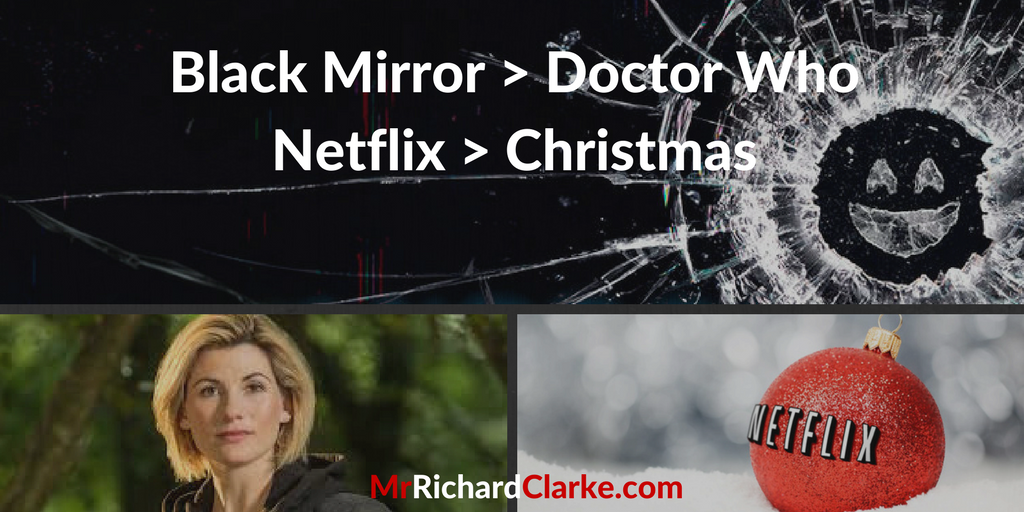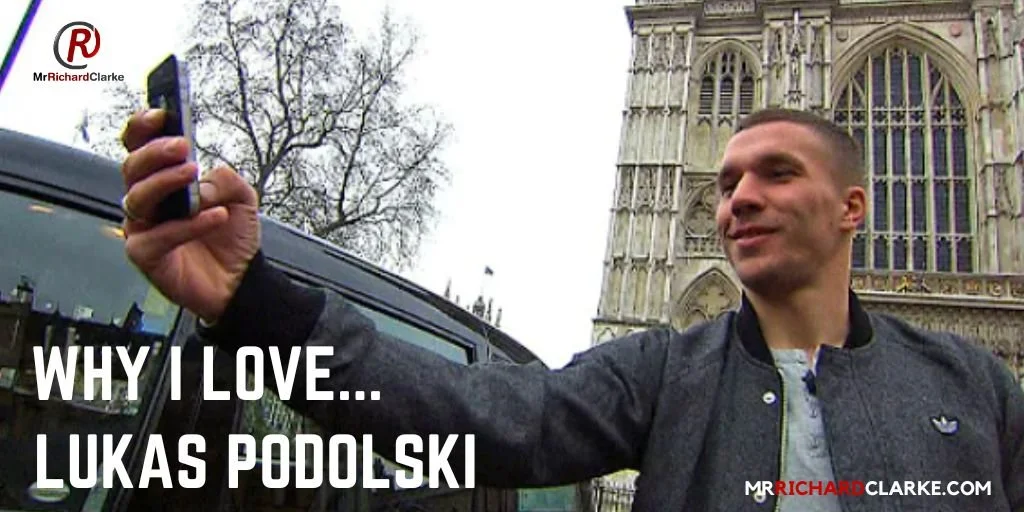The OTT platform who stole Christmas TV and Black Mirror > Doctor Who
Blue Monday has been a ‘thing’ for many years now. It has been ‘worked out’ to be the second Monday after the New Year - one week after the decorations come down, two weeks before you finally finish off that block of sandstone resembling a Christmas cake and six months before you work off the weight you put on over the festive period.
It is also a complete load of bollocks.
The concept of being a bit gloomy in January is long established. There’s the festive comedown, a lack of money, cold/dark/miserable mornings and, that special New Year touch, the stark realisation that your job/relationship/finances/life are going nowhere.
That is not the bollocks bit.
The BS is the pseudoscientific calculation that proclaimed the gloomiest day was on a certain date each year. Rumour has it that a travel company dreamt up the concept in 2005 in order to push booking summer holidays, another January tradition. Well done that marketing exec, say I.
In reality, Blue Monday seems right so we are prepared to believe it.
Likewise, we ‘think’ or perhaps ‘like to think’ Christmas TV is still special but, for me, it has waned as the other options increased.
And this year, on Blue Monday, I released – Netflix has killed stone dead.
Festive television used to be a cultural highlight in the UK. Most series would end in mid-December to clear the decks, specials were created by the bigger shows, budgets were stored up to splurge on big films on holiday afternoons. The bumper TV listings magazines were the biggest selling publications of the year.
Christmas Day afternoon was spent slumped in a chair, shovelling away needless chocolate waiting for the show, film or special that would dominate the watercooler conversation once you got back to work. (Not that British offices had watercoolers as hydration had not been invented).
However, that has all changed.
This year, only two things garnered any anticipation in the Clarke household. The introduction of the first ever female Dr Who on BBC during a special on Christmas Day and the new series of Black Mirror on December 29.
Earlier in the year, we survived a month without terrestrial TV and, over Christmas, only three women - the Queen, my mother and Jodie Whittaker - really interrupted the diet of OTT products, gaming and sport.
Though, if you count a Monopoly marathon as ‘gaming’, then Mum was certainly up with the plan.
After I’d impoverished my opposition, Phillip Green-style, with a housing development on Fleet Street, Trafalgar Square and The Strand, we sat through a tedious episode of Dr Who. Thirty seconds before the credits, Peter Capaldi regenerated as a thirtysomething female from Yorkshire. She uttered the words: “Oh, brilliant” to confirm she’d be retaining her Northern accent and was then tossed around in a malfunctioning Tardis as it hurtled through time.
After all the build-up, that is the last we’ll see of this historic new Doctor until the new series in “late 2018”.
Compare that with Black Mirror Series 4.
I knew I had to wait through Christmas but I was still searching for clues, there was very little. On the day, I monitored social for first signs of the download and, by New Year’s Eve, I’d watched the lot and was searching for a podcast discussing what I had seen.
The show rattled around my brain for more than a week and I loved every minute of it.
The quality of the six episodes varied only between an A or B-, enough to keep the brand high and anticipation even higher for Series 5. I even re-watched episodes from previous series.
Seeking a similar fix of well-produced, suspenseful, dystopian drama, I am now working my way through The Man from the High Castle on Amazon. It’s good but no Black Mirror.
Over Christmas, there should have been the option of watching catch-up programmes on Sky. But, here again, my expectations have changed. They tried to make me watch as much as two minutes of ads on my device before the content would play. So I switched back to the seamless progression of Netflix, where I don’t even have to watch the credits.
Of course, it depends what you like. I don’t “do” soaps or reality TV and, of course, I have to watch my sport away from Netflix and, for now, Amazon. But then again, that’s mostly live anyway so I’ll crowbar the main TV away from the kids for that.
And let’s make a sporting analogy. Between Christmas and Blue Monday, the FA Cup third round took place. The competition used to be special but the rise of the Premier League and Champions League have thrust it down the pecking order it. The supposedly ‘filthy lucre’ of winning, qualifying for or staying in those competitions outweighed the glory of a day out at Wembley in May.
But anyone who experienced English football in the 80s has to accept that Premier League and Champions League have improved the standard of play, facilities and the spectacle.
Whether its soul is still the same is another matter.
Likewise, Christmas TV is just not good enough or delivered well enough to keep me away from OTT channels giving me what I want, where I want, without interruption.
And, just between you and me, if you find festive specials on YouTube - not just the highlights, the full shows - then it might prove the favourites programmes made by the traditional broadcasters were never as good as we remember.
Now there are many more platforms, programme-makers and technology experts forever nudging forward the state-of-the-art.
If you don’t watch out you can look really old, really quickly.




